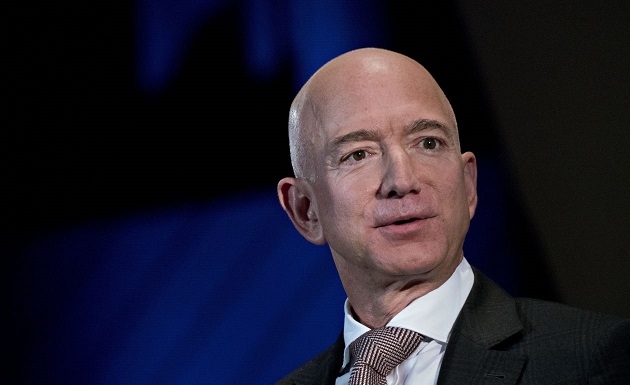EU is investigating Amazon
September 21, 2018 | Expert Insights

European authorities said Wednesday they have opened a preliminary antitrust investigation into Amazon over the e-commerce giant’s treatment of smaller merchants on its website.
Background
Amazon is an American electronic commerce and cloud computing company that was founded on July 5th 1994. It started as an online bookstore and later diversified to sell various commodities like electrical appliances and apparel. Today, it also produces consumer electronics like the Kindle e-Readers, tablets and more. Its market value had exceeded to $500 billion by July 2017.
Jeffrey Preston Bezos is the founder, chairman, and chief executive officer of Amazon.com. He is now the richest person in history. On January 8th 2018, Bezos net worth crossed $105.1 billion. He has replaced the old record, which was held by entrepreneur Bill Gates whose net worth had surpassed $100 billion in 1999.
Analysis
Amazon has become the latest big US tech group to have its business model questioned by Brussels after the European Commission announced that it had launched an investigation into how the ecommerce group uses data about merchants.
Margrethe Vestager, EU competition commissioner, said that the preliminary probe focused on the online retailer’s dual role as a competitor, but also host, to third-party merchants, which sell goods on Amazon’s websites.
Last year, for the first time, more than half of all items sold on Amazon came from third-party retailers, chief executive Jeff Bezos told shareholders earlier this year.
European businesses used the service to export more than €5bn worth of goods last year, according to company figures.
Ms Vestager’s move against Amazon comes towards the end of a five-year term where she has risen to international prominence for bringing cases against Silicon Valley, imposing a €4.3bn fine on Google in July for allegedly abusing its dominant position in mobile operating systems, and forcing Apple to pay Ireland €13bn in back taxes after finding that Dublin had given the company sweetheart deals.
Ms Vestager’s investigators sent questionnaires to retailers who do business with Amazon this week as part of a preliminary information-gathering process.
Preliminary investigations do not always lead to a formal investigation. Google’s antitrust troubles began with an informal probe in 2010. Amazon declined to comment.
The move came on the same day that Brussels ruled that an arrangement between McDonald’s and Luxembourg, which allowed the fast-food group to pay almost no tax on its European royalties in both the EU and US, did not break the bloc’s laws.
Amazon’s website sells its own products as well as those from other businesses. Its marketplace business lists the products of third-party sellers on its websites, alongside the company’s own items. The independent sellers can choose to use some or all of the platform’s fulfilment, payment and advertising services.
Amazon earns revenues for the services it provides but also benefits because the third-party sellers increase the selection and range of products available on Amazon’s websites.
Although EU officials stressed that it was not a formal probe, the action unusually was not prompted by a complaint from a competitor.
Amazon has in the past played down antitrust concerns, noting that it competes in large markets with multiple competitors and that online sales are a small fraction of the overall retail market.
Counterpoint
Amazon founder Jeff Bezos has downplayed the growing criticism of the company in the recent months. “All big institutions of any kind will be and should be scrutinised,” he said. “We are so inventive that whatever regulations are promulgated, that will not stop us from serving customers.”
According to a voluntary transparency register, Amazon spent up to €2m lobbying in Brussels in 2017. That is significantly less than the $13m it spent on US lobbying last year.
Assessment
Our assessment is that as online commerce continues to grow, there must be thoughtful scrutiny into practices to ensure marketplaces aren’t monopolized. We believe that it will be hard for the EU to establish that Amazon is unlawfully overtaking the market. The company currently has less than 50% of the market-share in online commerce. We also feel that Amazon may step up its lobbying efforts in the EU to prevent excessive scrutiny in the future.








Comments